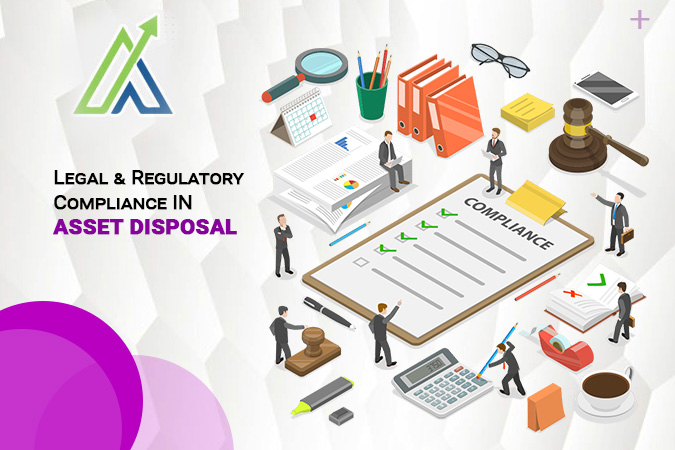Dumping assets isn’t a simple task; it’s tangled with a web of laws and rules. You have to deal with taxes, environmental laws, and contracts. Let’s dive into the key points you need to know when ditching assets, with examples and useful links.
Tax Laws and Implications
Depreciation and Capital Gains
When you sell off business stuff, watch out for depreciation and capital gains. Say you offload a machine that’s lost value over time. The difference between its sale price and book value could hit you with a tax. This is all under the Income Tax Act, 1961. Example: Sell a machine for ₹2,00,000 but its book value is ₹1,50,000. That ₹50,000 profit? Yeah, it’s taxable.
GST Considerations
GST isn’t just for products; it hits asset sales too. Selling fixed assets counts as supplying goods, so GST applies. You’ve got to calculate and pay up the right GST on these deals. Example: Offload an old vehicle? Your invoice needs to include GST to stay on the right side of the law.
Environmental Regulations
E-Waste Management Rules
In India, the E-Waste (Management) Rules, 2016, are a big deal. Companies must dispose of electronic junk properly, following strict steps to recycle and dump it safely, cutting down on environmental harm. Example: A tech firm must use certified e-waste recyclers to dump old computers right.
Hazardous Waste Management
The Hazardous and Other Wastes (Management and Transboundary Movement) Rules, 2016, lay down the law for hazardous junk. Companies need the green light from the State Pollution Control Board and must follow the guidelines for safe handling, recycling, and dumping. Example: A factory with old machinery full of nasty stuff has to use approved methods and facilities for disposal.
Contractual Obligation
Lease Agreements
When it comes to leased assets, read those lease agreements carefully. They often have rules about how and when you can return or sell assets.
Example: Leasing office gear? You must notify the lessor before dumping anything, as per your lease terms.
Vendor Contracts
Vendor contracts can also have disposal rules. Stick to these to dodge penalties or legal trouble. Example: Your vendor deal might say specific machinery needs to be returned, not sold or trashed.
Legal Compliance and Documentation
Documentation and Record-Keeping
Keep good records. Proper documentation is a must for staying legal. Track all asset disposals with sales invoices, tax filings, and environmental compliance papers. Example: Ditching a fleet of vehicles? Keep detailed records of every transaction, including buyer info and tax details.
Audits and Inspections
Be ready for audits and inspections. Properly documented and compliant disposal activities will make these processes smoother. Example: If the Income Tax Department audits you, they’ll want to see detailed records of asset sales and tax payments.
Questions to Understand your ability
Q: Why does GST hit when you sell fixed assets?
- They’re seen as goods
- To rake in cash
- To make accounting easy
- Because the government said so
Q: What do the E-Waste Rules, 2016 force companies to do?
- Ignore e-waste
- Dump it in landfills
- Use certified recyclers
- Sell it to anyone
Q: What’s needed before dumping hazardous waste under the 2016 rules?
- Nothing special
- State Pollution Control Board’s nod
- Local police approval
- Municipal corporation’s permission
Q: What should a company check before getting rid of leased assets?
- Sell without telling anyone
- The lease agreement’s terms
- Return them to the vendor
- Recycle without checking
Q: Why is keeping records crucial when dumping assets?
- To avoid confusion
- For asset tracking
- To stay legal and pass audits
- For better storage
Conclusion
Navigating the messy world of asset disposal means understanding taxes, sticking to environmental rules, and honoring contracts. Know the tax impacts, follow environmental laws, and meet contractual obligations to keep things running smoothly.
FAQ's
These rules ensure that companies recycle and dispose of electronic waste safely to protect the environment.
Companies need authorization from the State Pollution Control Board and must follow strict guidelines for safe disposal.
Lease agreements often contain specific terms and conditions for returning or disposing of leased assets, so they need to be checked to avoid penalties.
Common assets include electronics, machinery, vehicles, and construction materials, all of which have specific disposal requirements.
Proper documentation ensures legal compliance, helps during audits, and provides a clear track of all transactions
Companies should use certified e-waste recyclers and follow the guidelines set by the E-Waste (Management) Rules, 2016.
Capital gains are the profit from the sale of an asset. The difference between the sale price and the book value affects how much tax is owed.

